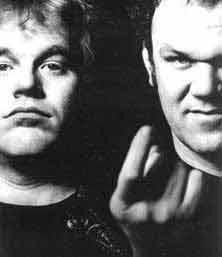A lot of people have been asking me for recommendations on films to watch in preparation for college. Some of them are interested in film school, while others just want to be cool and know the classics that all teachers and students will bring up. This is an excellent question. I am going to review several films that I believe are important for anyone entering college to watch - for fun, for knowing pop culture, for class discussions, or for late night viewings with a cold brew. The first one is a film that shocked audiences and still causes trouble in classrooms today.
A Clockwork Orange debuted in America in 1971, even though the copyright in the film is officially 1969. It was directed by Stanley Kubrick, who had just finished 2001: A Space Odyssey. Kubrick adapted the screenplay from Anthony Burgess’s novel of the same name. This film was made in Britain with mostly British actors, and distributed by Warner Brothers. It was nominated for Best Picture, Best Direction, Best Adapted Screenplay, and Best Film Editing at the 1971 Academy Awards, but won nothing.
The film follows the feats of Alexander De Large (played by Malcolm McDowell), a criminal youth in futuristic Britain. The teenaged Alex is the leader of a gang that enjoys rape, drugs, and causing various other kinds of mischief. Alex’s parents are weak and do not know how to control him, and his guidance counselor/ probation officer, Deltoid (Aubrey Morris), is not much of a force, either. After Alex breaks into a house and murders a woman, his gang turns on him and lets him be captured by the police. He is sent to prison, where he tries to be nice to the Chaplain (Godfrey Quigley) so as to get favorable treatment. He signs up for a new procedure that the government is backing. This procedure tortures him with mandatory films of violence and destruction while a harsh drug makes him extremely ill. The product of this treatment is that Alex cannot use violence without becoming sick, making him harmless. After he enters back into society, all of the people he has hurt get their revenge on him, and, being unable to fight back, he suffers extreme pain.
The film has an interesting chronological feel to it. It was made in the thick of the cultural revolution in the Sixties, and its depiction of a crumbling society reflects how many people saw the world then. Druggie youths causing problems were a major fear to older people at this time. It takes place in the future, though, so it also applies to any destructive time period. The film uses lots of classical music such as Beethoven, which is Alex’s favorite, but it also synthesizes some of these classical pieces for a futuristic effect. The result is a mix of old standards and futuristic ideas. The set designs achieve this effect as well, with shiny, futuristic shopping malls in one scene and a castle-like prison in another.
The movie is historically important for many reasons. It is perhaps the greatest work of Stanley Kubrick’s career, which is remarkable given Kubrick’s place in history. It is widely praised by critics as a masterpiece and a true cinematic classic. Controversy, however, followed this film’s release. Its stark depictions of sex and violence upset many viewers. It was banned in Britain for a few years after some youths admitted to copying violent acts in the film. It was originally rated “X” in the United States when that rating was used, but today it has been lowered to ‘R.” The language in the film can also be frustrating, because Burgess created a new version of slang in his novel by mixing Russian and English words that sound alike.
Critics hail the film as groundbreaking for many of its philosophical and political qualities. The main theme comes from Alex’s new condition at the end of the film. The prison’s chaplain believes that Alex has no freedom if he cannot choose to do good or bad. The minister (Anthony Sharp) focuses on how it will prevent him from doing harm. This is an important ethical issue to the film. The minister also has to deal with accusations that he has used Alex as a pawn to get votes. The film thus makes a statement about government tactics in new programs and elections. The film also mocks the police in various ways.
Kubrick included an ambiguous ending, even though Burgess originally ended the novel happily, with Alex maturing. Kubrick’s denial of this reinforces the cynical feeling of the film, and perfectly demonstrates why it is both loved and hated by so many.
